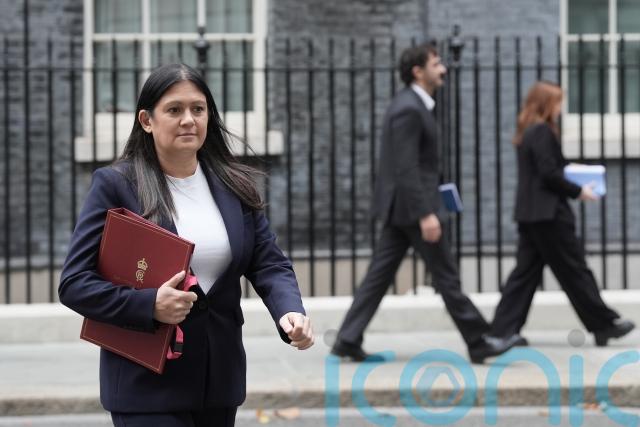
Government borrowing costs have risen in the wake of an apparent income tax U-turn by the Chancellor.
Speculation that Rachel Reeves has scrapped her plans to raise income tax at the Budget has sparked a sell-off in UK Government bonds, also known as gilts: the means by which the Government borrows money from private investors.
The Chancellor had been expected to hike income tax in the face of a yawning gap in her spending plans, hinting as recently as Monday that the alternative would be “deep cuts” to public investment.
But the Financial Times has reported that she has now abandoned introducing those plans at the November 26 Budget over fears they could anger both voters and back bench Labour MPs.

The tax rise would break Labour’s election manifesto pledge not to raise income tax, national insurance, or VAT.
Yields on 30-year gilts jumped by up to 14 basis points in early trading, and the yield on 10-year gilts also shot up 12 basis points – rising the most since July.
The yield moves counter to the price of bonds, meaning that prices fall when yields rise.
The pound also felt an initial shock as the markets opened, but then started to recover.
Suggestions that the tax hike could be abandoned was welcomed by Health Secretary Wes Streeting.
“I’m not in favour of breaking manifesto pledges,” the senior Cabinet minister told LBC Radio.
Mr Streeting, who in recent days has been the target of a briefing war inside Government, said: “I think that trust in politics and politicians is low and it’s part of our responsibility to not only rebuild our economy and rebuild our public services, but to rebuild trust in politics itself.”
He added: “The fact that the Chancellor – and we’re going on speculation here – but the fact that the Chancellor was reported as even considering breaking manifesto commitments tells you two things: Firstly, the public finances are under real pressure, and secondly she is fundamentally, unequivocally, committed to her fiscal rules and so therefore she’s got some invidious choices to make, and she’s weighing those up.”
Culture Secretary Lisa Nandy had earlier insisted Ms Reeves would not “play fast and loose with people’s money” when she was questioned about reports the income tax rise had been abandoned.
According to the Financial Times, the decision not to raise the tax was communicated to the Office for Budget Responsibility on Wednesday, when the Chancellor submitted a list of “major measures” to be included in her Budget.
An income tax rise would help her bridge a fiscal black hole estimated by some economists to be up to £50 billion, but it would also break Labour’s manifesto pledge not to raise income tax, national insurance or VAT.

The prospect of a manifesto breach drew criticism earlier this month from Labour’s new deputy leader Lucy Powell, who said it would damage “trust in politics”.
Having vowed not to return to “austerity” through deeper spending cuts, the Chancellor could now have to rely on increases in a wider range of smaller taxes if she is to stick to her self-imposed rules on debt and borrowing.
The Financial Times suggested that one option would also be to reduce income tax thresholds while keeping tax rates the same, which could raise billions of pounds for the Treasury.
Conservative leader Kemi Badenoch said the reported U-turn was “good (if true)”.
Liberal Democrat deputy leader and Treasury spokeswoman Daisy Cooper described the move as an “11th hour screeching U-turn” but said struggling families could be spared “yet another punch-in-the-stomach Budget”.
Subscribe or register today to discover more from DonegalLive.ie
Buy the e-paper of the Donegal Democrat, Donegal People's Press, Donegal Post and Inish Times here for instant access to Donegal's premier news titles.
Keep up with the latest news from Donegal with our daily newsletter featuring the most important stories of the day delivered to your inbox every evening at 5pm.